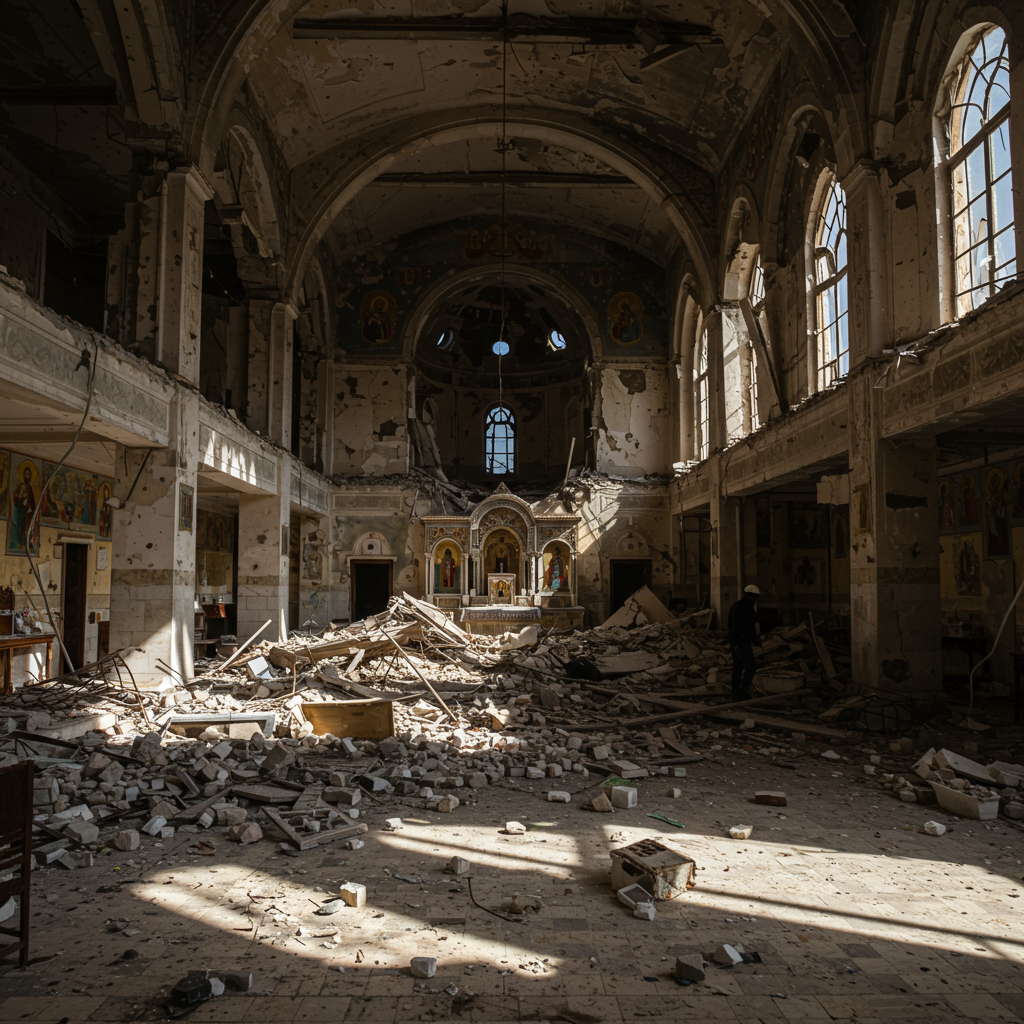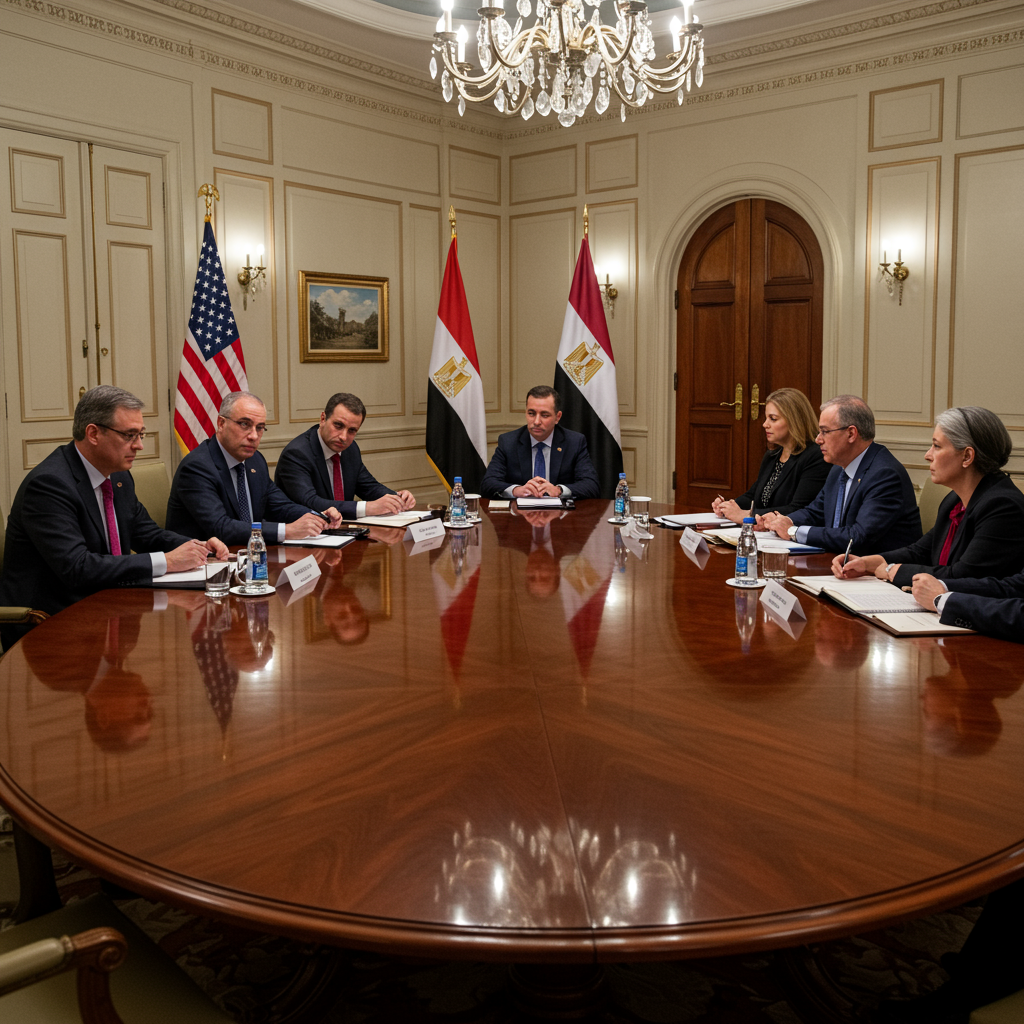Deadly Attack Strikes Damascus Church During Prayers
A horrific suicide bombing claimed by the Islamic State (IS) group struck the Greek Orthodox Saint Elias (also known as Mar Elias) church in the Dweila neighborhood on the outskirts of Damascus, Syria, on Sunday, June 22, 2025. The devastating attack, occurring during evening prayers, resulted in significant casualties, with Syrian state media reporting at least 22 people killed and 63 injured.
The bombing marks a grim milestone as the first major operation and the first suicide bombing carried out by the Islamist terror group in Syria since the fall of former President Bashar al-Assad’s regime in December and the establishment of a new Islamist-led transitional government.
Details Emerge of the Assault on Worshippers
According to Syria’s interior ministry, a man affiliated with IS entered the crowded Saint Elias church, located in the old Christian quarter of Damascus, while approximately 150 to 350 worshippers were present for mass. Witnesses and security sources reported that the attacker first opened fire on the congregation before detonating an explosive vest he was wearing inside the sanctuary. Some eyewitness accounts and security sources also suggested the possible involvement of a second gunman who shot at worshippers but did not detonate explosives.
Survivors described scenes of unimaginable horror. One witness, Fadi Ghattas, stated he saw at least 20 people dead, while Issam Nasr, who was praying at the time, said he saw people “blown to bits.” Nasr lamented, “We have never held a knife in our lives. All we ever carried were our prayers.”
Images and livestreams from the scene showed the brutal aftermath, with splintered and overturned pews, a bloodied floor, shattered icons, and extensive damage to the church’s interior masonry. Nearby residents reported hearing a large blast followed by sirens as emergency services, including Syria’s civil defense group the White Helmets, rushed to the area and security forces established a cordon.
Context: IS Exploits Security Vacuum Amidst Transition
The bombing follows months of relatively low-level IS activity. Experts believe the group is attempting to exploit the security vacuum created by the collapse of the Assad regime to reconstitute itself and reassert its presence. Syrian officials have indicated that IS was able to seize weaponry and ammunition left behind by fleeing regime soldiers to bolster its resources.
The new Syrian government, which is largely led by former members of the Islamist rebel group Hayat Tahrir al-Sham (HTS), has been conducting anti-IS raids across the country since taking power. HTS had previously fought IS as a rebel group, viewing it as a source of instability. However, IS is now attempting to use the perceived moderation of the new government – particularly highlighting instances like the Syrian President, Ahmed al-Sharaa, meeting with international figures – as a recruitment tool for disaffected Islamist fighters, portraying such interactions as a betrayal of jihadist principles.
Government Response and International Condemnation
The Syrian government has publicly committed to protecting religious minorities under its rule. Security personnel are typically stationed at the entrances to the city’s Christian quarter to inspect vehicles as part of these efforts. Following the attack, Syrian officials swiftly condemned the violence.
Syria’s Minister of Information, Hamza al-Mustafa, described the bombing as a “cowardly terrorist act” that contradicts the “values of citizenship that unite us all,” emphasizing the importance of national unity and civil peace. The Damascus municipality is investigating the incident, while the foreign ministry labeled it a “desperate attempt to undermine national coexistence and to destabilise the country,” specifically targeting the Christian community. Syria’s Interior Ministry spokesman also reportedly stated that both ISIS and “remaining members of the ousted Assad government” were attempting to destabilize Syria, calling the security of places of worship a “red line.” The Christian Minister of Social Affairs and Labor, Hind Kabawat, also met with clergy to offer condolences.
The international community also reacted strongly. The office of the UN Special Envoy for Syria, Geir Pedersen, expressed “outrage” at the “heinous crime” and condemned it in the “strongest possible terms,” calling for a full investigation. Greece, Turkiye, and Saudi Arabia were among the nations that unequivocally condemned the attack, with Greece specifically demanding that Syrian authorities hold those responsible accountable and guarantee the safety of Christian communities.
Challenges Ahead for the New Government
Despite nominally holding power over most of Syria, the new government faces significant challenges in extending its control across a country still fragmented by various militias. The defense ministry is reportedly working to integrate these armed groups into a unified national army.
The fight against IS since the territorial defeat of its “caliphate” has largely been led by the US-backed, Kurdish-led Syrian Democratic Forces (SDF). While cooperation between the SDF and the new Syrian government in combating IS is beginning, it remains in its nascent stages. The potential resurgence of IS in Syria continues to be a key concern for the US and other members of the anti-IS coalition. This latest attack underscores IS’s persistent capability to exploit security vulnerabilities despite years of counterterrorism efforts.




